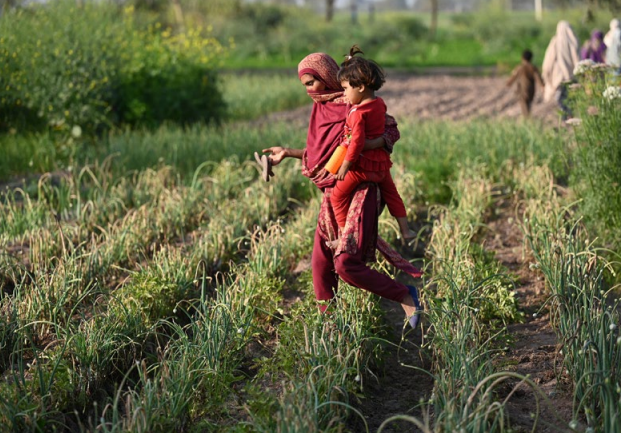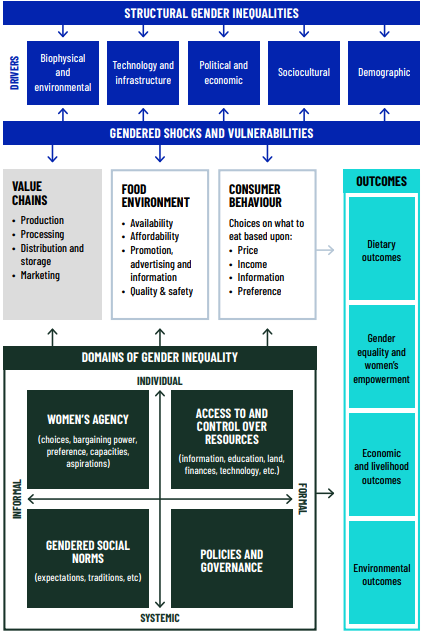In this Article
The Food and Agriculture Organization of the United Nations (FAO) assessed women’s participation in all aspects of agrifood systems, both on and off farms, using the framework for gendered agrifood systems.

Drawing upon the framework proposed by Njuki et al. (2022), FAO emphasized women’s involvement across all stages of agrifood systems, encompassing production, processing, distribution, marketing, entrepreneurship, and consumption. The framework aims to address specific outcomes such as nutrition, empowerment, sustainability, and livelihood diversity, considering various resources, policies, and norms. Additionally, it addresses emerging challenges like climate change, COVID-19, and conflicts, which intersect with existing gender inequalities.

The drivers shaping agrifood systems, including biophysical, environmental, technological, infrastructural, political, economic, sociocultural, and demographic factors, are influenced by gender and intersecting social and economic differences. Gender equality and women’s empowerment outcomes, as well as dietary, economic, livelihood, and environmental outcomes, are greatly impacted by the interaction of the various agrifood system components, as well as the drivers of formal and informal structural and individual inequalities.
Despite the significance of agrifood systems for women’s livelihoods and their families’ welfare, women often face marginalization in their roles, with working conditions typically inferior to those of men. This inequality is heightened by women’s heavier burden of unpaid domestic and care work, including cleaning, cooking, and caregiving, leading to inequalities in labor market participation and outcomes.
Although there is an improved understanding of the feminization of agriculture, more work is needed to determine policies and programs that can enhance women’s economic opportunities in male-dominated fields, promoting equitable gender relations and household prosperity.
Reference:
Food and Agriculture Organization of the United Nations (2023). The status of women in agrifood systems. Rome. Retrieved April 5, 2024 from https://doi.org/10.4060/cc5343en




